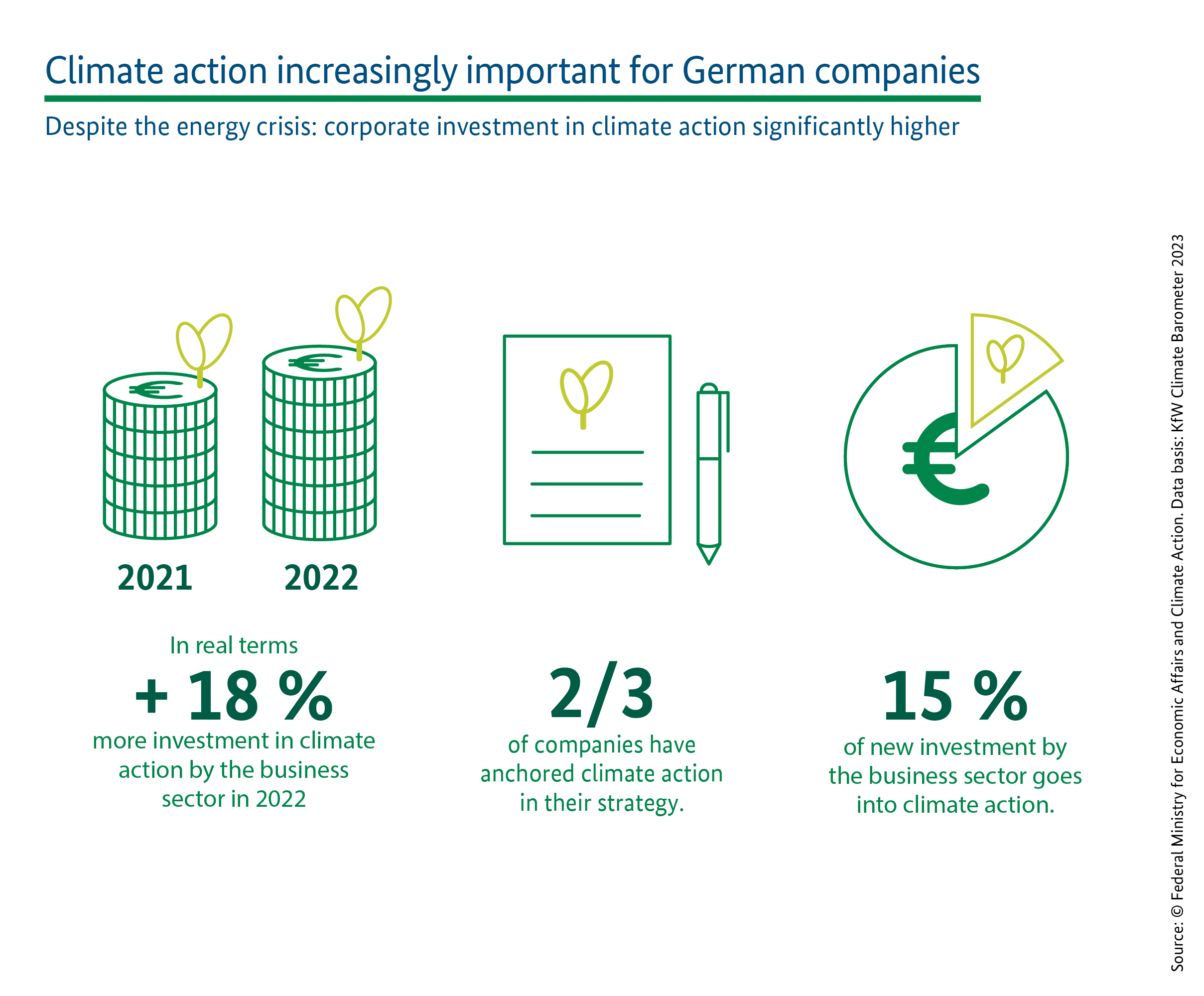German firms committed to climate action
Despite a tough business environment, not least due to the energy crisis, German firms continued to step up their efforts to combat climate change last year. This is reflected in the latest figures from the KfW’s 2023 Climate Barometer.
 © BMWK; data basis: KfW Climate Barometer 2023
© BMWK; data basis: KfW Climate Barometer 2023
It says that investments in climate action increased by 18% in real terms in 2022 (+€17 billion). One euro in seven in the business sector was spent on investments in climate action in 2022. That equates to 15% of total investment. The Climate Barometer believes that a key factor behind this development is the sharp rise in prices for fossil fuels, which has made investments in energy efficiency and the use of renewable energy more economically attractive.
Progress on strategic anchoring
According to the Climate Barometer, two thirds of all companies in Germany have anchored climate action at least to some extent in their business strategy. That is ten per cent more than the year before. It remains the case that only a few companies have set their own climate neutrality target, but the proportion of such companies has risen year-on-year from ten to 15%.
Whilst roughly 60% of companies basically support Germany’s climate neutrality target, around 70% – mainly small and medium-sized enterprises – have yet to develop any specific plans. The lead is being taken by larger companies and, in sectoral terms, by the manufacturing industry.
Financing of investment in climate action from own funds
A large proportion of the companies use their own funds to finance their investment in climate action (42% of micro-enterprises and 91% of large enterprises). In comparison with large companies, SMEs tend more to use bank loans and government funding to finance their projects.
The Climate Barometer believes that a reliable and rising CO2 price signal and the availability of adequate finance and funding are the key factors for a continued rise in investment in climate action. It says that the biggest barriers to investment are uncertainty about the economic viability of investment in climate action, and a lack of financial resources.

